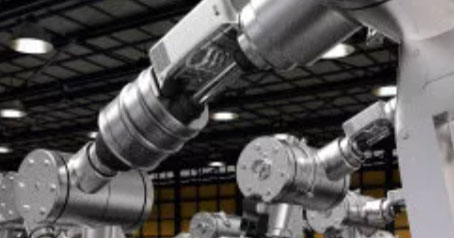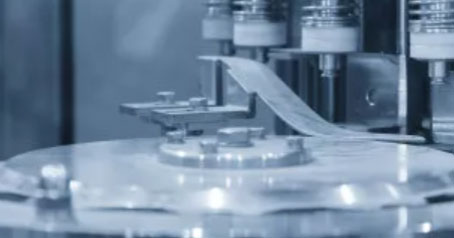In the world of fluid power systems, hydraulic piston pumps play a pivotal role in converting mechanical power into hydraulic energy. These pumps are widely used in various industries, from construction and manufacturing to agriculture and automotive. In this blog, we will delve into the intricacies of hydraulic piston pumps, exploring their working principles, types, applications, and advantages.
Working Principles of Hydro piston
Hydraulic piston pumps operate on the fundamental principle of positive displacement. They use reciprocating pistons to displace fluid from one chamber to another, creating a continuous flow of hydraulic fluid. The process involves alternating suction and discharge strokes, where fluid is drawn into the pump during the suction stroke and then pushed out during the discharge stroke. This mechanism ensures a consistent flow of fluid, making hydraulic piston pumps suitable for high-pressure applications.
Types of Hydraulic Piston Pumps
There are two primary types of hydro pistons: axial piston pumps and radial piston pumps. Axial piston pumps feature pistons that move parallel to the pump's central axis. These pumps are known for their high efficiency and compact design. They can be further categorized into swashplate and bent-axis designs. Swashplate axial piston pumps utilize a swashplate mechanism to convert the rotating motion of the drive shaft into linear motion of the pistons. On the other hand, bent-axis axial piston pumps employ a bent-axis arrangement to achieve the same goal. Radial piston pumps have pistons arranged in a circular pattern around the central shaft. As the shaft rotates, the pistons move in and out due to the eccentricity of the shaft. This motion creates the necessary displacement for fluid transfer. Radial piston pumps are known for their durability and ability to handle high pressures, making them suitable for heavy-duty applications.
Applications of Hydraulic Piston Pumps
Hydraulic piston pumps find application in a wide range of industries due to their high efficiency and ability to generate high pressures. Hydraulic piston pumps are used in construction equipment such as excavators, bulldozers, and cranes. These machines require precise control over heavy loads and movement, which hydro pistons provide efficiently. In manufacturing, hydraulic piston pumps power machines used in metal forming, injection molding, and other industrial processes. Their ability to deliver consistent pressure ensures the accuracy and quality of the manufactured products. Automotive systems, such as power steering and hydraulic suspension, benefit from the compact size and reliability of hydraulic piston pumps. These pumps assist in achieving responsive steering and smoother rides.
Advantages of Hydraulic Piston Pumps
Hydraulic piston pumps offer several advantages that make them a preferred choice in various applications.Due to their positive displacement mechanism, hydro pistons provide consistent and efficient fluid delivery, even under varying load conditions. Hydraulic piston pumps are capable of generating and maintaining high pressures, making them suitable for heavy-duty tasks that demand substantial force. These pumps are designed to withstand harsh working environments and deliver reliable performance over extended periods, minimizing downtime and maintenance costs. Hydraulic piston pumps allow for precise control over fluid flow and pressure, enabling accurate operation of machinery and systems.
In the realm of fluid power, hydraulic piston pumps stand as reliable workhorses that enable the functioning of numerous industries. Their versatile applications, efficiency, and ability to handle high pressures make them indispensable components in modern machinery and systems. Whether it's constructing towering skyscrapers or steering a vehicle on a winding road, the hydraulic piston pump plays a crucial role in powering our world.
 French
French
 Portuguese
Portuguese
 Russian
Russian
 German
German
 Spanish
Spanish
 Japanese
Japanese
 Korean
Korean
 Irish
Irish
 Greek
Greek
 Turkish
Turkish
 Italian
Italian
 Danish
Danish
 Romanian
Romanian
 Indonesian
Indonesian
 Czech
Czech
 Afrikaans
Afrikaans
 Swedish
Swedish
 Polish
Polish
 Basque
Basque
 Catalan
Catalan
 Esperanto
Esperanto
 Hindi
Hindi
 Lao
Lao
 Albanian
Albanian
 Amharic
Amharic
 Armenian
Armenian
 Azerbaijani
Azerbaijani
 Belarusian
Belarusian
 Bengali
Bengali
 Bosnian
Bosnian
 Bulgarian
Bulgarian
 Cebuano
Cebuano
 Chichewa
Chichewa
 Corsican
Corsican
 Croatian
Croatian
 Dutch
Dutch
 Estonian
Estonian
 Filipino
Filipino
 Finnish
Finnish
 Frisian
Frisian
 Galician
Galician
 Georgian
Georgian
 Gujarati
Gujarati
 Haitian
Haitian
 Hausa
Hausa
 Hawaiian
Hawaiian
 Hebrew
Hebrew
 Hmong
Hmong
 Hungarian
Hungarian
 Icelandic
Icelandic
 Igbo
Igbo
 Javanese
Javanese
 Kannada
Kannada
 Kazakh
Kazakh
 Khmer
Khmer
 Kurdish
Kurdish
 Kyrgyz
Kyrgyz
 Latin
Latin
 Latvian
Latvian
 Lithuanian
Lithuanian
 Luxembourg
Luxembourg
 Macedoniar
Macedoniar
 Malagasy
Malagasy
 Malay
Malay
 Malayalam
Malayalam
 Maltese
Maltese
 Maori
Maori
 Marathi
Marathi
 Mongolian
Mongolian
 Burmese
Burmese
 Nepali
Nepali
 Norwegian
Norwegian
 Pashto
Pashto
 Persian
Persian
 Punjabi
Punjabi
 Serbian
Serbian
 Sesotho
Sesotho
 Sinhala
Sinhala
 Slovak
Slovak
 Slovenian
Slovenian
 Somali
Somali
 Samoan
Samoan
 Scots Gaelic
Scots Gaelic
 Shona
Shona
 Sindhi
Sindhi
 Sundanese
Sundanese
 Swahili
Swahili
 Tajik
Tajik
 Tamil
Tamil
 Telugu
Telugu
 Thai
Thai
 Ukrainian
Ukrainian
 Urdu
Urdu
 Uzbek
Uzbek
 Vietnamese
Vietnamese
 Welsh
Welsh
 Xhosa
Xhosa
 Yiddish
Yiddish
 Yoruba
Yoruba
 Zulu
Zulu







